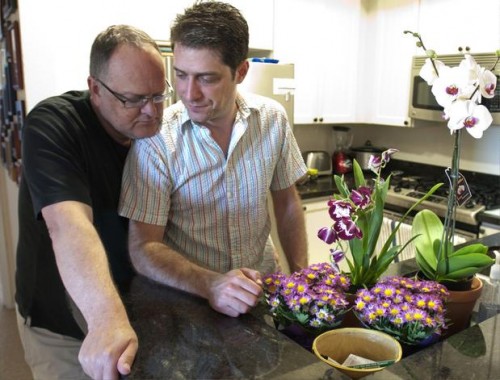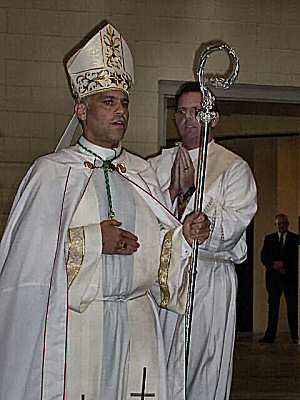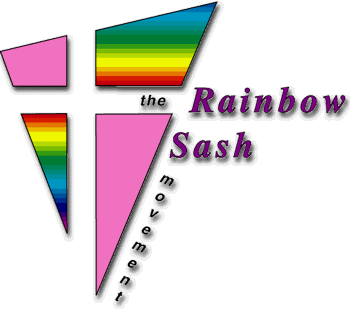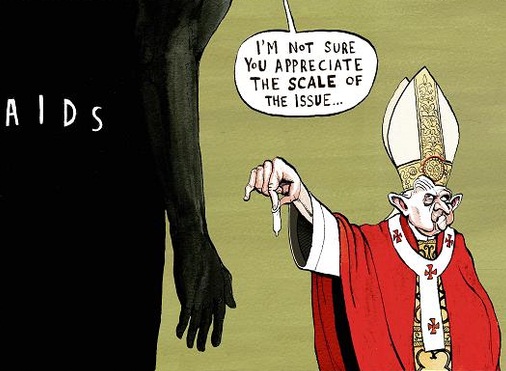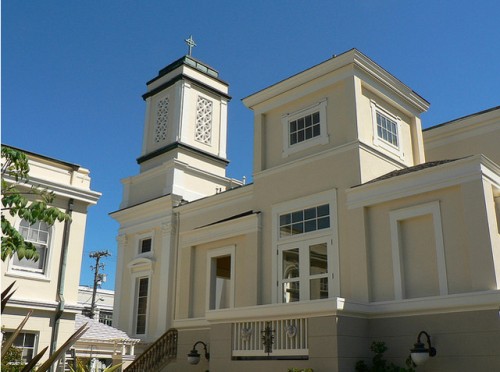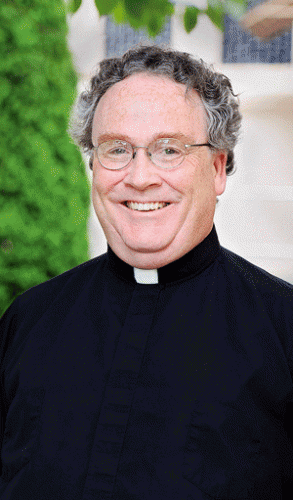On Sunday, priests in a number of Twin Cities Roman Catholic parishes read a letter from Archbishop John Nienstedt re-stating the church’s support for the proposed constitutional amendment to ban same-sex marriage.
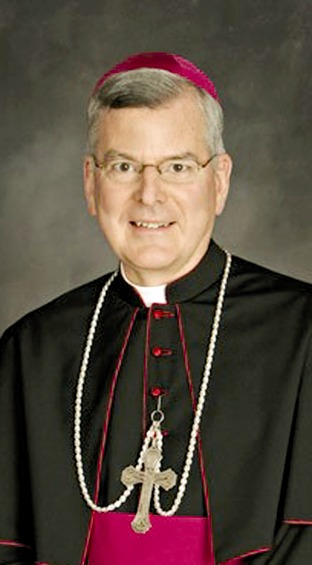 On Monday, Michael Bayly, the director of Catholics for Marriage Equality, noticed a spike in requests for the group’s lawn signs, which read, “Another Catholic Voting No.”
On Monday, Michael Bayly, the director of Catholics for Marriage Equality, noticed a spike in requests for the group’s lawn signs, which read, “Another Catholic Voting No.”
Some of the people who stopped by his south Minneapolis office to pick them up told him people had walked out of their churches during the reading. A parishioner at the nearby Church of the Annunciation said half a dozen left her service.
On Thursday, the Archdiocese of St. Paul and Minneapolis’s official publication, the Catholic Spirit, carried the text of the letter.
Meanwhile, the Facebook site “I am Catholic. I am Voting NO!” acquired a list of parishes where the letter was not read. The most prominent of the 17 churches listed: Minneapolis’ Basilica of St. Mary.
In the letter, Nienstedt asserts that the purpose of the ballot initiative has been misconstrued. “Our effort to support God’s unchanging plan for marriage is not a campaign against anyone, but rather a positive effort to promote the truth about marriage as a union between one man and one woman,” he writes.
“But the reality is that marriage is not ours to redefine, just as another human life is not ours to take,” the archbishop continues. “God is both the author of life and the author of marriage. It is this most fundamental understanding of the natural order that animates who we are as Catholics. … It is also why we fight to defend God’s plan for marriage, because his providence is as clear for what marriage is as it is for the dignity of each human life. …
“Now, Minnesota for Marriage needs your help to get the message out. We must ensure that Minnesotans know what is at stake and have the correct information about why they should vote ‘Yes’ for the marriage amendment. (Remember that if you leave the ballot box blank, the government votes ‘No’ for you!).”
The Archdiocese did not return calls seeking comment Thursday.
Bayly hears something different. “He seems to have softened his language about gay people,” he said, referring to Nienstedt. “They must have realized they’ve alienated people.”
“We know that some who are seeking to redefine marriage experience same-sex attractions,” the letter reads. “Our brothers and sisters living with same-sex attraction are beloved children of God who must be accepted with respect, compassion and sensitivity.
“Every sign of unjust discrimination in this regard must be avoided. People with same-sex attractions, like others in society, are productive citizens, community servants, good friends and our beloved family members.
“At the same time, however, it is important to know that the effort to ensure that the definition of marriage remains as between one man and one woman does not take away anyone’s existing rights or legal protections. As Catholics, we believe that all people should be able to visit loved ones in the hospital, pass on their property to whomever they choose and have access to employment, housing and the basic necessities of life. Saying ‘yes’ to God’s plan for marriage will not change any of this.”
In recent months, Catholics who either plainly disagree with the church’s stance on marriage rights for gays and lesbians or who are wrestling with their consciences have been increasingly visible. The conflicted parishioners have organized everything from informational meetings in borrowed, non-Catholic churches to vigils outside the Chancery.
Many were offended by Nienstedt’s decision to take a very active role in the campaign for the amendment. To date, Minnesota Catholic churches and groups have given $1 million to the vote-yes effort.
Others have been unhappy with statements that put their love for their church in opposition to their love for LGBT relatives and friends. One example: A letter Nienstedt penned for the Catholic Spirit soon after his 2007 ascension in which he warned that those “who actively encourage or promote homosexual acts … formally cooperate in a grave evil, and … are guilty of mortal sin.”
Still others were upset that in the run-up to the 2010 gubernatorial contest, Nienstedt distributed 400,000 DVDs, paid for by an anonymous donor and by the Knights of Columbus, urging Catholics to vote for the only candidate in the race opposed to same-sex marriage, Tom Emmer.
“That language and that approach has clearly been ditched,” said Bayly. Still, he added, “The fact that they can’t bring themselves to talk about gay people or lesbian people is offensive.”
The divide has put the church in the headlines numerous times in recent months. In late July, newspapers reported that Minnesota Secretary of State Mark Ritchie, himself the topic of amendment-related news stories, had been invited to speak at St. Joan of Arc Church in Minneapolis. Later stories reported that he was subsequently uninvited and then that his appearance had been postponed.
At the same time, some members of a group of 102 former priests that signed on to a statement opposing the amendment have disagreed publicly with the church’s depiction of its teachings.
“That conscience must rule is consistent with what all of us former priests learned in seminary,” Ed Kohler wrote in a letter published earlier this month in the Pioneer Press. “That conscience must rule is also consistent with the current Pope Benedict XVI — who taught, while still Father Joseph Ratzinger, that ‘Over the pope as the expression of the binding claim of ecclesiastical authority, there still stands one’s own conscience, which must be obeyed before all else, even if necessary against the requirements of ecclesiastical authority.’”
One active priest, Bob Pierson, told some 200 Catholics at an event in Edina that they can vote against a proposal to amend the Minnesota Constitution to ban gay marriage. Bayly and several other members of Catholics for Marriage Equality say they have been told the Archdiocese has ordered Pierson to stay silent on the issue from now on.
“There are groups of Catholics who are hungry for alternative perspectives on this,” Bayly said. “I’ve got a pretty well-full September of speaking engagements around the state.”
Complete Article HERE!

